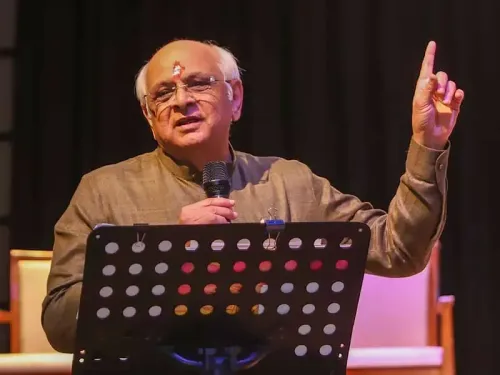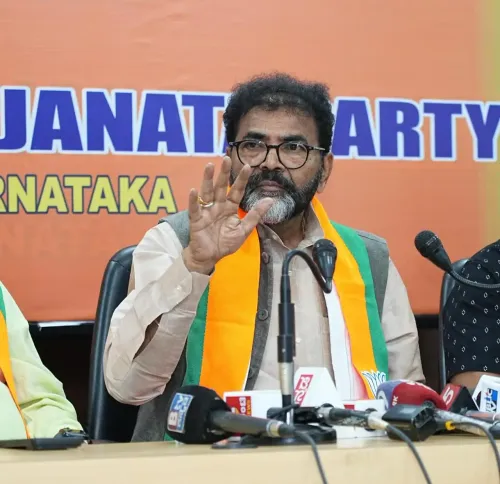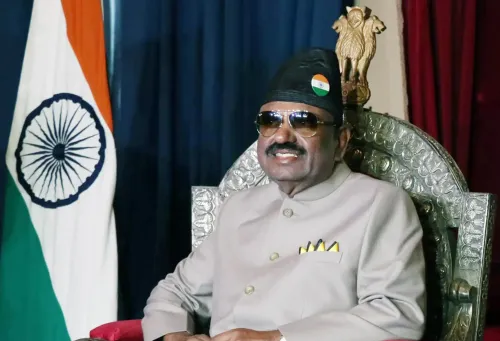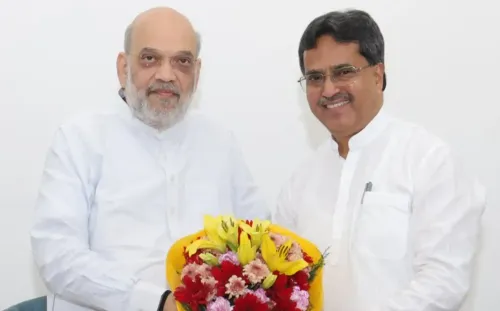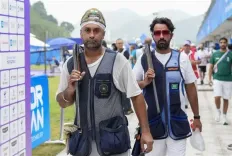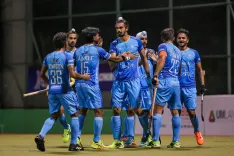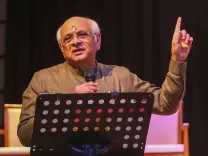Sajad Lone Critiques Reservation System's Impact on Kashmiri Speakers
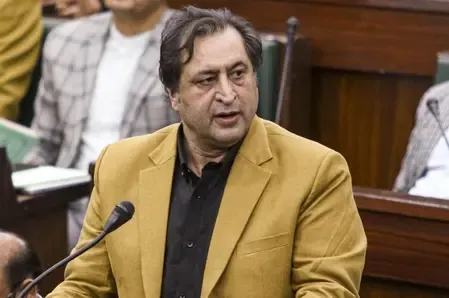
Synopsis
Key Takeaways
- Sajad Lone highlights the marginalization of Kashmiri speakers.
- Current reservation system creates social disempowerment.
- Kashmiri representation in KAS has decreased significantly.
- Reservation system disproportionately affects Kashmir.
- Call for region-specific rationalization of reservation quotas.
Srinagar, March 13 (NationPress) During a speech at the Assembly on Thursday, Sajad Lone, President of the Jammu and Kashmir Peoples Conference (PC) and MLA representing Handwara, emphasized the increasing marginalization of Kashmiri-speaking individuals, attributing it to what he characterized as an unjust reservation system. In a statement from the party, Lone showcased data indicating a consistent decline in the representation of Kashmiri speakers in esteemed positions, claiming that the existing reservation structure fosters a form of social disempowerment for this community.
"The overall mental landscape of schools and children has encountered significant upheaval. The Kashmiri-speaking populace constitutes a unique ethnic group, and we observe that with each passing day, fewer of them are succeeding in exams—not due to a lack of ability, but because their access is being restricted," he asserted during the Assembly.
Using statistics, Lone highlighted a troubling trend in the recruitment for the Kashmir Administrative Service (KAS). His data revealed that the representation of Kashmiri speakers in KAS selections has drastically decreased in recent years—accounting for merely 19 percent of successful candidates in 2023, a drop from 25 percent in 2022 and 17 percent in 2021.
He further explained how the existing reservation framework, which encompasses nearly 60 percent of available positions, disproportionately impacts Kashmir.
"Eight percent is allocated for Scheduled Castes, yet there are no SCs in Kashmir. This is an extra burden on us," he pointed out, revealing a significant structural imbalance.
In a similar vein, regarding Scheduled Tribes, Lone noted that 40 percent of ST reservation benefits are directed towards Jammu, while 60 percent are designated for Kashmir, creating a scenario where "Jammu receives reservations, and Kashmiri speakers are evaluated based on open merit."
Lone depicted a grim future for Kashmir if the current system remains unaltered. "I urge you to reflect deeply and tell us—if you return here in 20 years, how many KAS officers will be Kashmiri-speaking in this secretariat?" he challenged.
He extended his worries to medical education, questioning if the current leading doctors in Kashmir would have even gained admission to Government Medical Colleges under the existing framework.
Lone advocated for a holistic approach to rectify what he identified as a systemic injustice, calling for a region-specific rationalization of reservation quotas. Looking ahead to the newly elected government, he expressed optimism that they would prioritize the concerns of the Kashmiri-speaking ethnic group based on merit, labeling the issue as "generational" in its significance.

